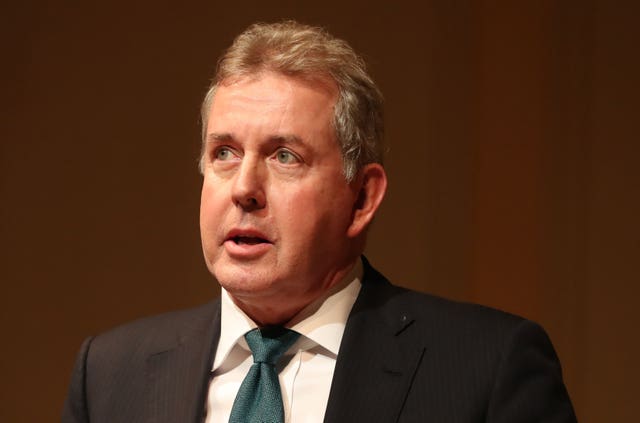The Metropolitan Police came under fire after warning journalists against the publication of further leaked diplomatic dispatches.
Scotland Yard announced on Friday it was launching a criminal investigation into the leak of cables from the British ambassador to the US, Sir Kim Darroch, which were highly critical of the Trump administration.
Assistant Commissioner Neil Basu said there was a “clear public interest” in bringing the perpetrator to justice given the damage caused to Britain’s international relations.
In a highly unusual move, he also warned the media that they could face prosecution if there was any further publication of the documents.
“The publication of leaked communications, knowing the damage they have caused or are likely to cause, may also be a criminal matter,” he said.
“I would advise all owners, editors and publishers of social and mainstream media not to publish leaked government documents that may already be in their possession, or which may be offered to them, and to turn them over to the police or give them back to their rightful owner, Her Majesty’s Government.”
His comments were condemned by George Osborne, the editor of the London Evening Standard, as “very stupid and ill-advised”.
The former chancellor said that Mr Basu failed to understand the importance of press freedom and urged Metropolitan Police Commissioner Cressida Dick to disown his warning.
If I were the Metropolitan Police Commissioner, and I wanted to maintain my credibility and the credibility of my force, I would quickly distance myself from this very stupid and ill-advised statement from a junior officer who doesn’t appear to understand much about press freedom https://t.co/k9cYzKrcox
— George Osborne (@George_Osborne) July 12, 2019
“If I were the Metropolitan Police Commissioner, and I wanted to maintain my credibility and the credibility of my force, I would quickly distance myself from this very stupid and ill-advised statement from a junior officer who doesn’t appear to understand much about press freedom,” he tweeted.
Tory MP Bob Seely said that while the police were entitled to pursue whoever passed the documents to the press, it was a mistake to target journalists.
“Going after the leaker is fair game, going after the media is not,” he said.
The chairman of the Commons Foreign Affairs Committee, Tom Tugendhat, also questioned whether journalists who published such material were committing an offence.

“I doubt it is a crime to publish. The ability to have a free press is essential,” he told the BBC Radio 4 Today programme.
However former defence secretary Sir Michael Fallon said the leak was a clear breach of the Official Secrets Act and that the Government and the police were entitled to try to prevent further disclosures.
“If they are receiving stolen material they should give it back to their rightful owner,” he told the Today programme.
“They should also be aware of the huge damage that has already been done and the potentially even greater damage to be done by further breaches of the Official Secrets Act. That is the law of the land.
“I think the Government and the police are fully entitled to find out who was involved in that and if they can to prevent it happening again.”

Sir Kim announced on Wednesday he was resigning, saying his position had become “impossible” following the leak of his dispatches in which he described Donald Trump’s White House as “inept” and “dysfunctional”.
His comments drew a furious response from the president who denounced him as a “very stupid guy” and a “pompous fool” and said the White House would no longer deal with him.
Mr Basu said the Met had been brought in following a cross-government investigation led by the Cabinet Office into the leak of the cables to the Mail On Sunday.
In a statement, he urged whoever was responsible to turn themselves in and face the consequences of their actions.
“You can stop this now. Turn yourself in at the earliest opportunity, explain yourself and face the consequences,” he said.
Meanwhile, Mr Trump has suggested he was too quick to denounce Sir Kim following the leak.
Speaking to reporters at the White House, Mr Trump said he had since been told Sir Kim had said “some very good things” about him.
“I wish the British ambassador well. Some people just told me – too bad – they said he actually said some very good things about me,” he said.










